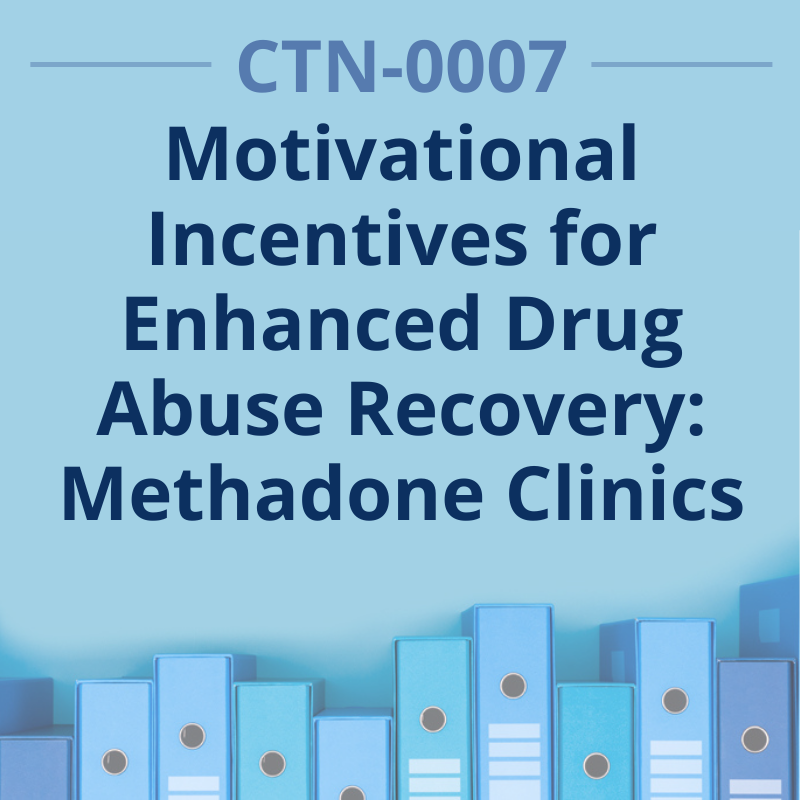CTN-0007: Motivational Incentives for Enhanced Drug Abuse Recovery: Methadone Clinics

Maxine Stitzer, PhD
Lead Investigator
Johns Hopkins University School of Medicine
mstitzer@mail.jhmi.edu
To improve outcomes for treatment of drug abuse, it is necessary to use interventions that can motivate clients to attend treatment and initiate and sustain abstinence. This study in community-based methadone-maintenance clinics evaluated the effectiveness of abstinence-based incentives considerably lower in cost than those typically used in research clinics. The primary aim was to determine whether introduction of abstinence-based incentives targeting (a) drug abstinence and (b) patient retention into usual care improves these treatment outcomes, compared to usual care alone. 388 stimulant-abusing patients enrolled in six methadone-maintenance community treatment programs for at least 1 month and no more than 3 years were randomly assigned to receive usual care plus abstinence-based incentives or to usual care alone for 12 weeks.
Primary Findings
Patients assigned to the abstinence-based incentive condition were twice as likely to submit alcohol- and stimulant-free urine samples, compared to patients assigned to the usual care condition. Achieving up to 12 weeks of continuous abstinence was more likely for abstinence-based incentive versus usual care patients. Groups did not differ on study retention or counseling attendance. Prizes cost on average $ 120 per patient. A low-cost abstinence-based procedure was effective in improving stimulant-abstinence outcomes in community-based methadone-maintenance clinics.

Primary Outcomes Article: Peirce J, et al. Effects of lower-cost incentives on stimulant abstinence in methadone maintenance treatment. Archives of General Psychiatry 2006;63:201-208. [get article]
Related Studies
- CTN-0007-A-1: Survey of Counselor’s Perceptions of Incentive Programs
- CTN-0007-A-2: Economic Evaluations in the CTN — Methods & Applications
Related Resources
- CTN-0007 Study Protocol
- Publications in the Library about CTN-0007
- Study data from NIDA Data Share
- Blending Team Product: Promoting Awareness of Motivational Incentives (PAMI)
- Study Manual: Higgins C. The Contingency Management (CM) Checklist. Unpublished manual, Mid-Atlantic Node, 2006
- ClinicalTrials.gov (NCT00033020)
- NIDA protocol page
Node Involvement
Lead Node(s):
All Participating Nodes: